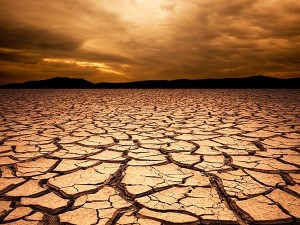| by Joseph B. Baity (Charlotte, North Carolina) |
|---|
 Water is growing markedly more precious with the extended and expanding droughts of the American West. Some sub-regions count 2021 as the twenty-first consecutive year of too little rain. Currently, 95 percent of the West—the most extensive area ever on record—is officially in drought, with 65 percent rated “extreme” or “exceptional,” the two direst categories. As a result, hydrologists and other water experts are anxiously preparing for an unpleasant announcement, expected later this month, of the first-ever federally declared water shortage on the Colorado River. This declaration includes Lake Mead, the nation’s largest capacity reservoir, and Lake Powell, the second largest, just a few hundred miles upstream. The U.S. Bureau of Reclamation, charged with managing the nation’s reservoirs, is expected to project that—due to record drought conditions, ongoing demand, and unrelenting heat—the water levels’ disheartening decline will continue to accelerate, triggering the declaration. For years, many affected communities, municipalities, and states have voluntarily restricted their water usage. However, the shortage declaration would require more drastic—and mandatory—cuts. It would be difficult to overestimate the frightful implications of these shrinking water supplies. The Colorado River and the reservoir system it fills provide water for over forty million people—more than ten percent of Americans—across seven western states and Mexico. Moreover, the hydroelectric power—over four thousand megawatts of capacity—generated by the series of dams that make up the system provides electricity to countless rural communities, small towns, and major cities like Los Angeles, Phoenix, and Las Vegas. Millions of people count on the Colorado River whenever they flip on the light switch. As essential as drinking water and hydroelectric power generation are, the river also provides crucial irrigation water to nearly six million acres of farmland while providing critical habitat for many wildlife species. The Colorado River is directly connected to nine national parks and seven national wildlife refuges. All seven states that make up the Colorado River Water Basin—Arizona, California, Colorado, Nevada, New Mexico, and Wyoming—would suffer mandatory “Tier One” rationing starting in January 2022 as a result of the upcoming cuts in water allocation. However, Arizona and Nevada rely on the Colorado River as their most significant single source for water, and Arizona will lose nearly twenty percent of its quota, a painful cut. Elsewhere, California is shutting down the Edward Hyatt Hydroelectric power plant this month—for the first time—due to low water levels in the state’s second-largest reservoir, Lake Oroville. This closing comes at a time of increased electrical demand during the heat of the wildfire season. Just under 25 percent of the state of Oregon is experiencing “exceptional” drought, the most ever, while fires continue to rage. What is more, over 33 percent of Washington State suffers “exceptional” drought. Until July, Washington had never seen “exceptional” drought conditions in the 21-year history of the U.S. Drought Monitor. The following six states suffer drought conditions in their entirety: California, Idaho, Nevada, North Dakota, Oregon, and Utah. All in all, nearly fifty percent of the United States is experiencing some level of drought. One year ago, in July 2020, that figure stood at only 25 percent. In the past month alone, the territory under “extreme” or “exceptional” drought grew by sixty thousand square miles—an area roughly equal to the state of Georgia. A trend has formed that is impossible to ignore. Without quick and plentiful rainfall this summer and autumn, followed by bounteous snowpack this winter, the unpleasant cuts to precious water resources will soon turn to something far more draconian. All Americans—not just those of the West—would be well-advised to remember, recognize, and submit to the almighty Source of their water. How easily a parched valley could turn verdant and fruitful once again with their sincere repentance (Job 5:10; Jeremiah 5:24; Hosea 10:12). ———————————————————————————- Reprinted with permission from: Church of the Great God https://www.cgg.org/ ———————————————————————————- |
Views: 9
Sign up to Receive [The "New" Church of God Messenger] weekly newsletter: